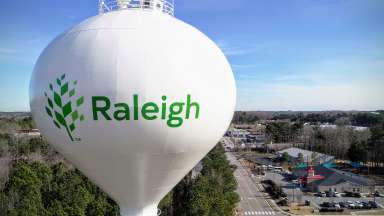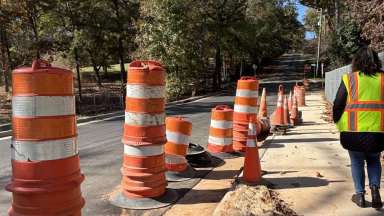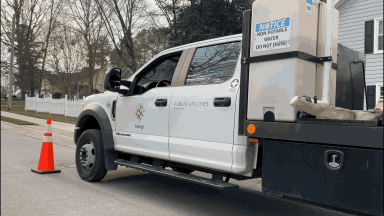Raleigh Water’s service area customers will see an increase in their utility bills beginning July 1, 2025.
Water and wastewater base and consumptive charges will rise by 4.0%, leading to an average monthly increase of $1.91, or 3.5%, for residential customers with a 5/8-inch water meter. This applies to nearly all single-family homes in Raleigh, Garner, Knightdale, Rolesville, Wake Forest, Wendell, and Zebulon, with proportional increases for customers outside city limits.
These adjustments are essential because, as a public enterprise, Raleigh Water operates by recovering costs directly through utility rates and fees, rather than through sales or property taxes. These upcoming adjustments are needed for maintaining reliable water and sewer services and support the City Council's commitment to replacing aging infrastructure, particularly critical pipes whose failure could have significant social, environmental, and economic consequences. Many current infrastructure challenges, including main breaks, stem from pipes installed after World War II, underscoring the need for continuous upgrades.
Raleigh Water provides essential services to the capital city and six merger communities. The region's significant growth has necessitated active expansion and maintenance of infrastructure. Last year, the team inspected 26,050 hydrants, adding 3,358 new ones since 2019, and completed 244,150 811 tickets for infrastructure safety. Crews also responded to 223 water main breaks, which requires dedicated on-call staff after hours.
Over the past five years, the system has grown to include 103,316 valves (up 31,992 since 2019), 82,209 manholes (up 9,660 since 2019), and 126 sewer pump stations, (up 16 since 2019). Overall, Raleigh Water manages 5,170 miles of pipe — enough to stretch from Raleigh to Los Angeles and back. The Customer Call and Billing center handled 217,894 calls, with 26,941 engagements last year.
Despite rising costs across the utility industry, Raleigh Water ratepayers have experienced some of the lowest and consistent increases in the state. By investing steadily each year, we can proactively address infrastructure needs, minimize sudden, steep rate hikes, and deliver reliable service while maximizing the value of every dollar spent. This approach leverages industry best practices to keep costs low and ensure a high return on investment for our customers while delivering high-quality service. Raleigh Water’s strong financial stewardship is reflected in our AAA bond ratings from all three major credit rating agencies.
Ratepayers can also play a vital role in managing water costs and can help keep their bills low by being mindful of leaks, especially in toilets and toilet flaps. Investing in efficient new appliances, such as washing machines, when possible, can also contribute to lower bills.
Raleigh Water remains committed to supporting its customer assistance programs, and funds are still available. Last year, the utility disbursed $102,803 in assistance. Residents seeking help with their utility bills should first contact Wake County Health & Human Services.
The rate increases discussed were approved by the Raleigh City Council on June 9, 2025, as part of the fiscal year 2026 budget. City officials and staff acknowledge the financial challenges many customers face and are dedicated to providing high-quality water, wastewater, solid waste, and stormwater services at a reasonable cost.
For more information about the water and wastewater rate increase, visit raleighnc.gov and search for 'utility rates.'



